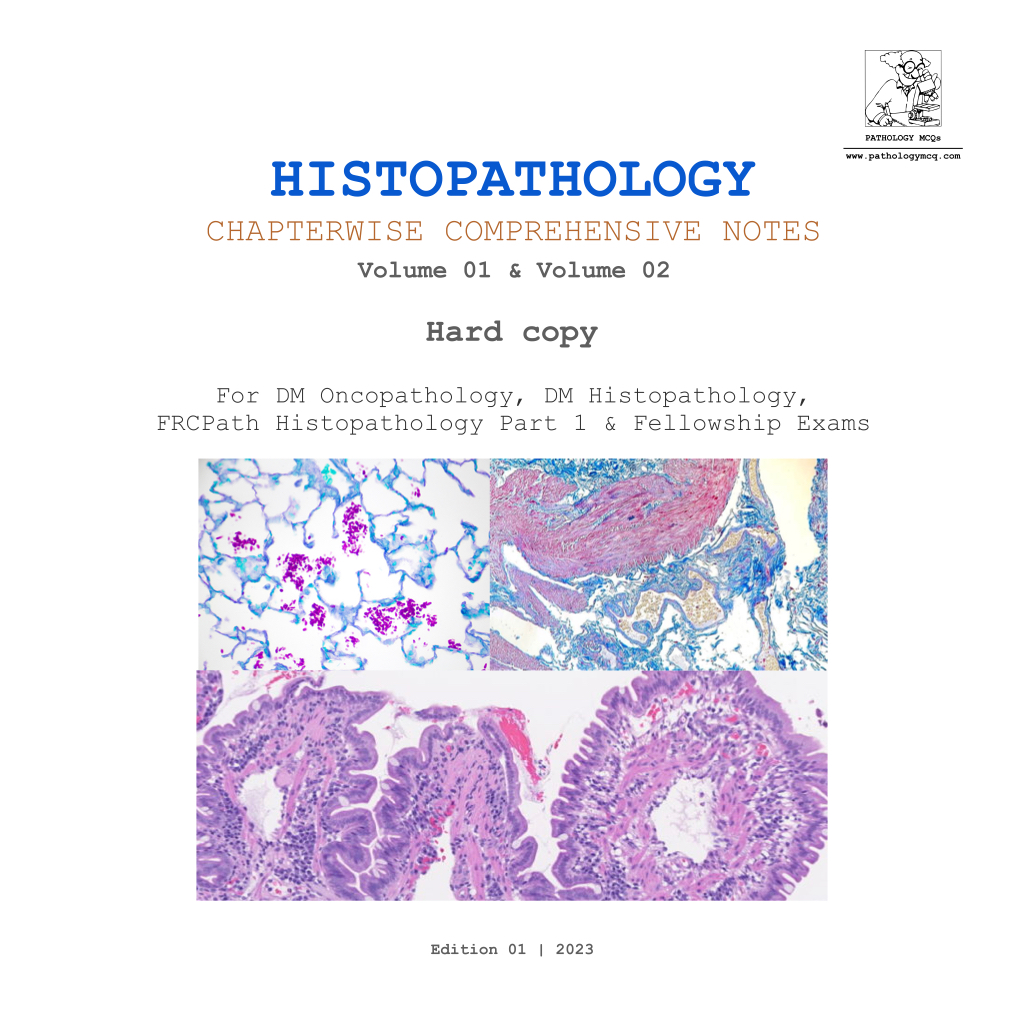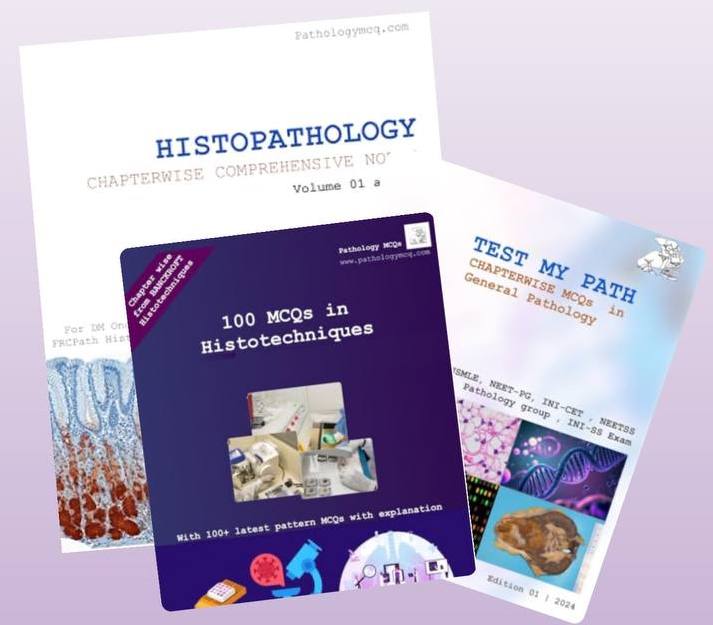Your cart is currently empty!
Familial biparental complete hydatidiform mole (CHM)
Published by
on
Familial biparental complete hydatidiform mole (CHM) – An update
👪 Represents 0.6 to 2.6% of CHM.
👪 Mutations of the NLRP7 on chr 19p and KHDC3L on chr 6p.
👪 Conventional CHM are usually of paternal origin (androgenic diploidy) , in contrast to familial CHM which are biparental .
👪 Autosomal recessive inheritance
👪 Patients present with recurrent complete hydatidiform mole.(CHM)
👪 Testing for p57 is negative similar to sporadic CHM.
Update WHO 2020 FGT.
Review question
Which of the following statements is false regarding Familial biparental complete hydatidiform mole (FBCHM)?
A) This condition is inherited in an autosomal recessive manner.
B) Germline mutations in NLRP7 are common
C) Patients present with recurrent complete hydatidiform mole (CHM)
D) P57 testing by Immunohistochemistry (IHC) is positive in cytotrophoblasts unlike complete mole.
CLICK TO REVEAL ANSWER
Correct answer is D: P57 testing by Immunohistochemistry (IHC) is negative in cytotrophoblasts complete mole both familial and sporadic CHM.
You may join telegram channel for chapterwise daily mcqs – Pathology mcqs
For pathology mcqs, weekly quizzes, interesting facts and updates – Visit HOME – Pathology for all
Join the Facebook page for daily questions- Pathology mcq
Useful for NEET-SS Oncopathology, DM Histopathology, FRCPath, and Hematopathology fellowships.
OUR COURSES/E-BOOKS

Courses:
Learn more >

Learn more >

E-Books in amazon kindle:
Learn more >
Leave a Reply